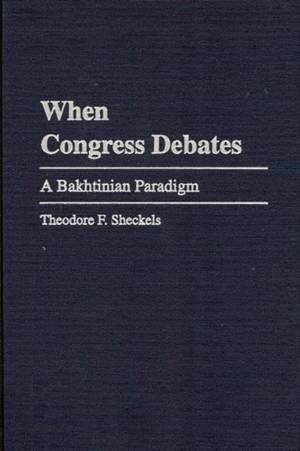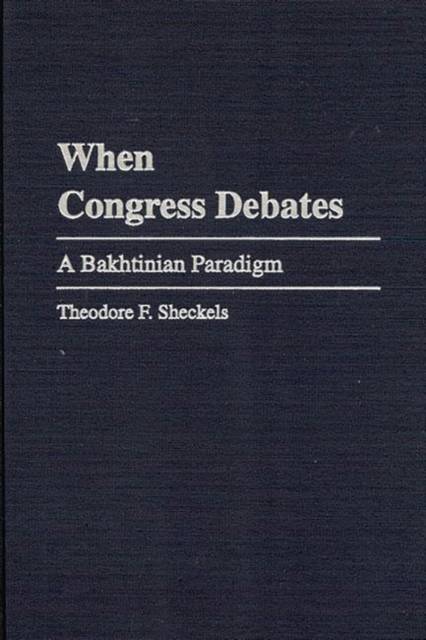
- Afhalen na 1 uur in een winkel met voorraad
- Gratis thuislevering in België
- Ruim aanbod met 7 miljoen producten
- Afhalen na 1 uur in een winkel met voorraad
- Gratis thuislevering in België
- Ruim aanbod met 7 miljoen producten
Omschrijving
Sheckels provides the first book-length study of Congressional debating. The limited work on the topic in the communication discipline has argued that such debating is tedious and inconsequential. Sheckels, however, offers a new paradigm, derived from the work of Mikhail Bakhtin, that counteracts this assumption. This paradigm also counters the often unvoiced assumption that debates are inherently biopolar with the initial premise that they are instead polyphonic. The polyphony, however, goes beyond the recognition of the multiple speakers who participate and the drama they enact, to the awareness of the voices these speakers introduce within their discourse. These voices range from the words of authorities to the narratives of average Americans, from classical prosopopoeia to what Bakhtin terms stylization. Speakers also sometimes enact what Bakhtin terms double-voiced discourse; furthermore, there are moments of what Bakhtin terms carnivalesque energy. Bakhtin's work finally alerts the critic to the illusion of finalizability in Congressional debates.
After outlining this paradigm, Sheckels uses it to examine six Congressional debates, ranging in date from a 1960 Senate filibuster on a civil rights matter to the 1999 House debate on articles of impeachment and includes analyses of such flash points as the Confederate flag, sexual harassment in the military, and partial-birth abortion. These case studies reveal both the utility and the flexibility of the Bakhtinian perspective. Thoughtful analyses that will be of great interest to scholars and researchers involved with rhetoric and political communication.Specificaties
Betrokkenen
- Auteur(s):
- Uitgeverij:
Inhoud
- Aantal bladzijden:
- 176
- Taal:
- Engels
- Reeks:
Eigenschappen
- Productcode (EAN):
- 9780275966676
- Verschijningsdatum:
- 30/09/2000
- Uitvoering:
- Hardcover
- Formaat:
- Genaaid
- Afmetingen:
- 162 mm x 244 mm
- Gewicht:
- 462 g

Alleen bij Standaard Boekhandel
Beoordelingen
We publiceren alleen reviews die voldoen aan de voorwaarden voor reviews. Bekijk onze voorwaarden voor reviews.












